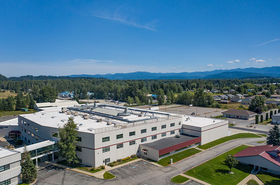A group led by Edge data center player Vapor IO is offering AI services on private wired and wireless Edge networks.
Zero Gap AI aims to make AI more cost-effective by offering it on demand over private networks.
It will be launched on Comcast's network infrastructure in Atlanta, Georgia, and pitched at applications including smart cities, healthcare, retail, logistics, and manufacturing.
The group describes the service as a 5G AI-as-a-service platform, that will provide a "mesh-like network grid for AI" supporting "microclouds" at locations such as retail storefronts, factory floors, and city intersections.
The idea is to enable AI services with fast response times, keeping data locally, but without a GPU server running on-premises. Vapor promises that new services can be deployed instantaneously, on-demand.
The platform is based around Supermicro's Nvidia MGX servers, which feature Nvidia's GH200 Grace Hopper superchip, which has a direct connection between the Grace CPU and the Hopper GPU.
These MGX servers support 5G and AI in the same machine, making it an ideal Edge AI platform, says Vapor. They will be deployed on Vapor IO’s Kinetic Grid platform, available in 36 US cities.
Vapor says the most common configuration will have high-speed private network or existing last-mile connections, including direct fiber from Zero Gap AI access nodes. If there's no other connection options, then built-in 5G can be used.
The companies expect to see a lot of demand for Zero Gap AI from the following verticals: smart cities, healthcare, retail, warehouse and logistics, hospitality, transportation, public venues, and manufacturing.
Example applications include stores running an AI-driven automated checkout system without expensive AI equipment in each store. Another example might be computer vision systems monitoring pedestrian safety at hundreds of busy intersections without an AI server at every corner.
“Our customers have made it clear they want comprehensive solutions,” says Cole Crawford, Vapor IO's founder and CEO. “Until now, the challenge has been the high costs and complexities of creating AI clusters in precise locations, not to mention managing the intricate dance of AI orchestration."
He goes on: "By eliminating the need for onsite AI and 5G hardware and leveraging private fiber from nearby access points, we're simplifying the process and cutting costs, enabling a seamless adoption and expansion of AI capabilities for businesses and municipalities alike.”







